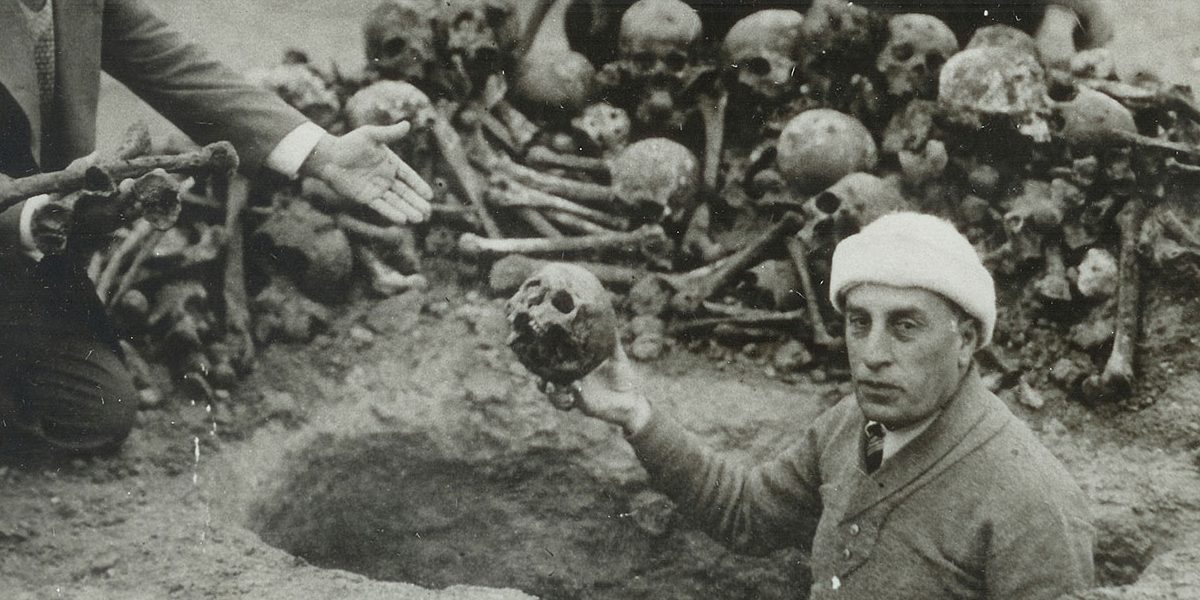The bitter smell of Armenian coffee—otherwise known as soorj—fills the house as I stare at an old photograph of my late grandfather whilst sipping on this cultural delight. The black and white picture is brittle and cracked, and it continuously endures the test of time, serving as a critical reminder that my grandfather worked tirelessly to bring his family to Canada.
He lived in a very different world compared to mine. His world was filled with instability, violence and bloodshed, as his family members were survivors of the 1915 Armenian genocide. It was a dark moment in history, and an even darker fissure in Turkish society.
Yet Turkey still denies the genocide ever took place, with the government in Ankara insisting the systematic annihilation of 1.5 million Armenian ethnics was simply a casualty of war, according to The New York Times. As a descendant of these survivors, I find this policy extremely offensive; it highlights Turkey’s backwardness and refusal to come to terms with its bloody past.
My connection to the genocide begins with my grandfather’s family, who hailed from a Turkish city called Iskenderun, situated by the Mediterranean. This city once housed a large and vibrant Armenian community, as did many others within the Ottoman Empire.
This all changed rapidly in 1915 when a radical political party called The Young Turks obtained power. The Young Turks saw the Armenian minority as a threat and also as a scapegoat, since the Ottomans had allied with Germany in WWI, and were losing the war at this point—especially on the Russian front. This led to a campaign of mass murders, arrests and deportation of ethnic Armenians, according to the United Nations.
This meant that my grandfather’s family was deported out of Iskenderun in 1915—before my grandfather was born—forced to march through the Syrian Desert in the harshest of conditions with barely any water, food or shelter. Hundreds of thousands would eventually die from exhaustion, starvation, dehydration and exposure, with marauding bandits also allowed to raid, rape and pillage Armenians as they marched onwards.
Two of my great-grandmother’s daughters were kidnapped during this period, never to be seen again. My ancestor’s house and possessions were confiscated and looted by locals and those in power.
A few family members survived this death march and made it to Deir al-Zour in the heart of the Syrian Desert. My grandfather was born sometime later without a birth certificate or any official papers. They were refugees, trying to find stability in a world that sought to murder them.
In 1985, the United Nations officially recognized the events of 1915-1917 against the Armenians, stating in the UN report on genocide that “evidence of that massacre has been provided in numerous diplomatic documents of the various countries, including Germany, which had been Turkey’s ally during the First World War.”
More than 25 countries including France, Canada and Russia recognize the events of 1915-1917 as genocide against the Armenian people, according to the CBC.
However, Turkish President Recep Tayyip Erdogan still adamantly denies a genocide took place. In a 2010 interview with CNN, Erdogan said, “no nation, no people has the right to impose the way it remembers history [onto] another nation of people.” He said in the same interview “no one should expect this of Turkey,” when questioned about labeling the violence as ‘genocide.’
This statement from the Turkish leader is a slap in the face to all Armenians around the world, and demonstrates the sheer lack of respect Erdogan has towards the living descendants of genocide survivors.
It’s bad enough that the perpetrators of the genocide were never tried for their crimes against humanity in an international court, or even in a Turkish court for that matter. In fact many of the collaborators went on to serve in the next government led by Kemal Ataturk, according to professor Frank Chalk, cofounder of the Montreal Institute for Genocide and Human Rights Studies. But to have a government policy that denies the systematic murder of more than a million people seems downright blasphemous.
Even prominent members of Turkish society have spoken out, admitting that there was indeed a genocide, only to be silenced by the government.
Orhan Pamuk, a famous novelist from Istanbul spoke out in 2005 to a Swiss newspaper, saying the murder of the Armenians was undeniable, according to BBC News. Following his comments, Pamuk was branded a traitor by the government and he was charged in Istanbul with ‘public denigration of Turkish identity’ according to The Guardian, with a prison sentence of up to three years. The charges were eventually dropped, but serves as a reminder that freedom of speech is hard to come by in the Turkish Republic.
“There is a debate in Turkish society today about which policy to follow in the future,” said Chalk, before adding that “the number of Turkish academics, intellectuals, and lawyers arguing in favor of acknowledging the Armenian Genocide is growing every year.”
Although the path to justice is far from over, the most important aspect here is to remember the genocide. To remember the people who did not get to live in a peaceful country, attend university, or live full lives. To pay homage to the 1.5 million people who were systematically targeted and murdered for belonging to a group, which included my ancestors, my family, and countless other families.
